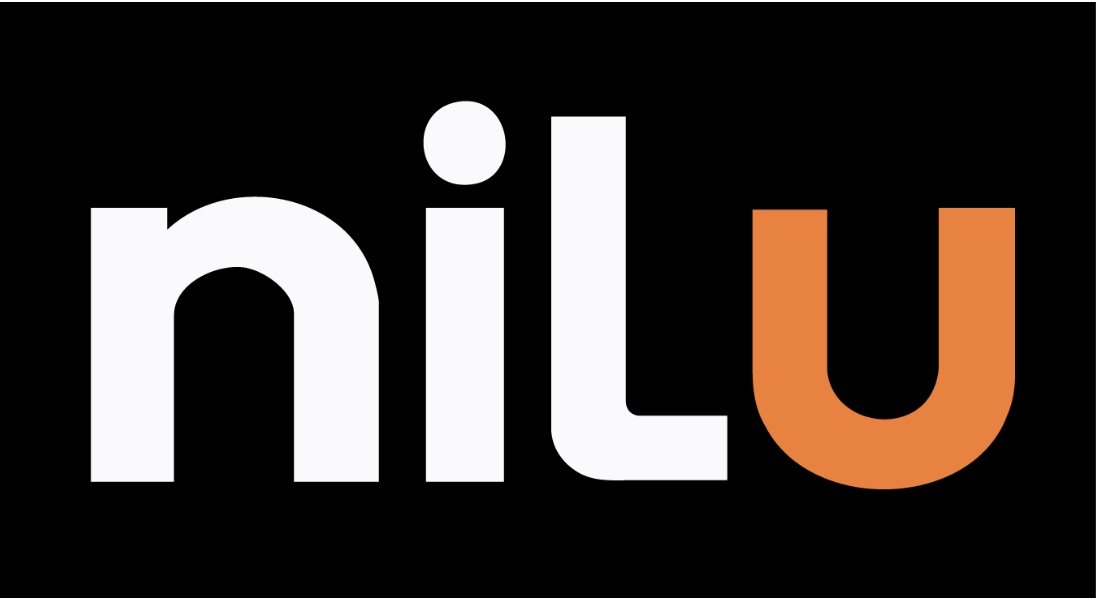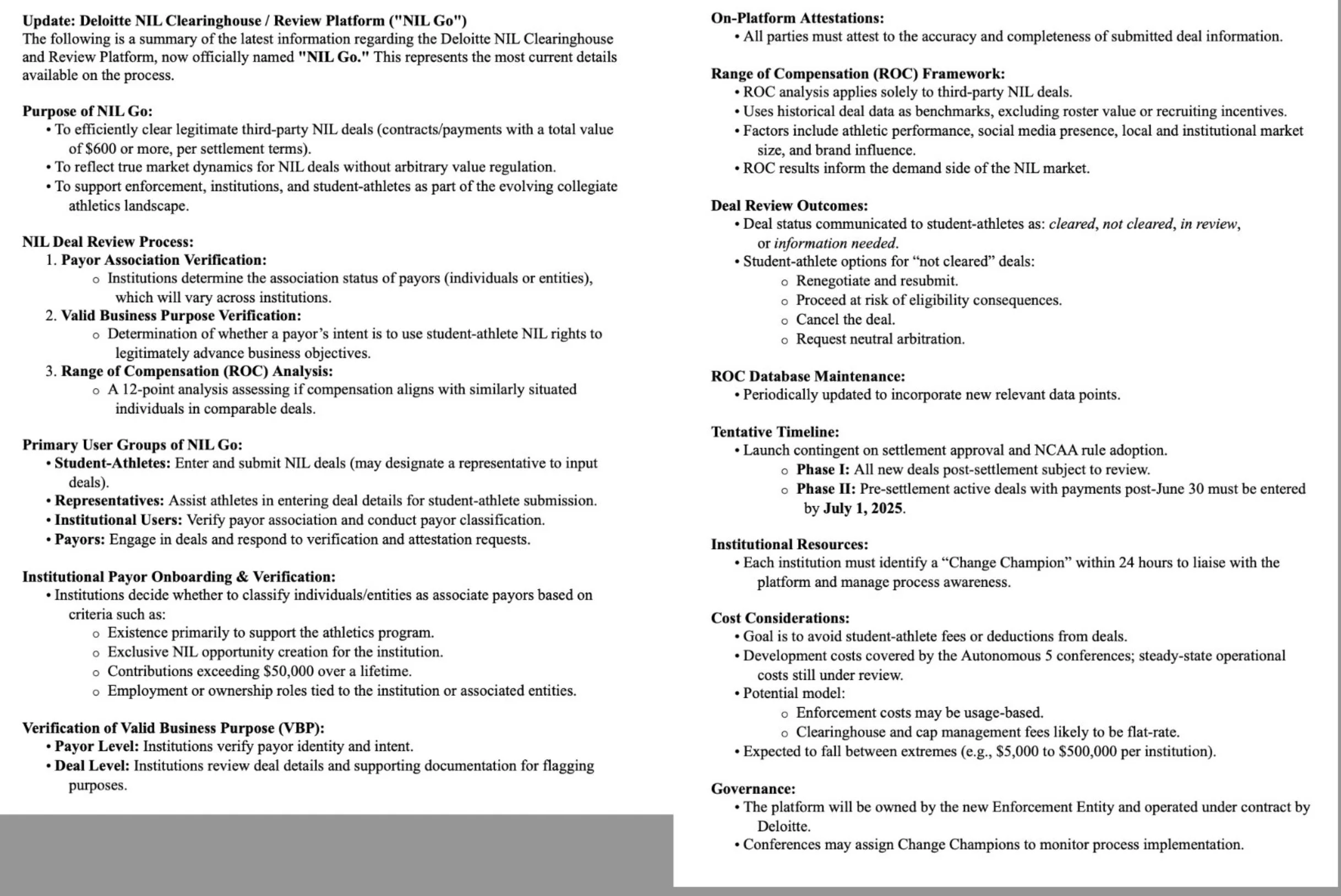NIL GO - More clarity on validity of payments to athletes.
The House v. NCAA settlement aims to create a new process for approving NIL (name, image, and likeness) deals to prevent “pay-for-play” arrangements. Recently, details about this process, managed by a clearinghouse called “NIL Go,” were shared in a memo. The clearinghouse will not block deals but will flag them for schools to review. Schools will decide whether a payer is a booster or part of a collective. Deloitte, the firm creating the software for the clearinghouse, may charge schools fees ranging from $5,000 to $500,000.
There are still many unanswered questions, such as the legality of the NCAA and conferences determining “fair-market value,” the penalties for athletes who opt out of the process, and the overall enforceability of the rules. Experts suggest that the settlement may not bring stability but instead produce more confusion and potential legal challenges. Approval from Northern District of California judge Claudia Wilken is pending, with terms set to take effect on July 1 if approved.
Under the new procedure, athletes must submit deal information to their athletic department, which must ascertain the nature of the paying entity. Criteria to classify payers include whether they significantly support the athletic department or if they hold certain roles related to the institution. Each school will have a designated employee, called a “change champion,” to oversee this process.
The settlement draft specifies that only deals associated with boosters or collectives will require this evaluation, and these will go through Deloitte's system to assess if they comply with fair-market value guidelines. This involves comparing deals with similar ones based on various factors, including social media presence, market size, and even performance metrics.
If a deal does not clear the review, athletes can cancel, renegotiate, seek neutral arbitration, or go ahead with the deal while risking eligibility issues. However, the memo does not clarify who will handle arbitration or the specific penalties for moving forward with flagged deals.
Deloitte won’t manage enforcement; this will fall to a new entity set up by the NCAA and power conferences. Industry experts have raised concerns about how fair-market value will be legally validated. If an athlete cannot pursue a deal due to its valuation, it could lead to lawsuits, as value is typically determined by the market rather than algorithms.
Experts also highlight the subjective nature of determining fair-market value as a potential legal hurdle that could spark disputes between athletes, businesses, and the clearinghouse. There’s also a concern that requiring submission of deal details could violate confidentiality clauses in athletes’ contracts.
It remains uncertain if the clearinghouse will have an effective enforcement mechanism. The NCAA has not clarified potential penalties for athletes or schools that disregard the clearinghouse, which is crucial considering past experiences of similar restrictions being overturned in court. To date, no athlete has faced penalties for violating NIL rules.
Though the settlement aims to provide structure, its vague wording on punitive measures may lead to complications in future legal cases. While institutions are anticipating that the House settlement will bring order and ensure compliance with rules, insiders express doubts about its effectiveness in achieving the desired outcomes.

